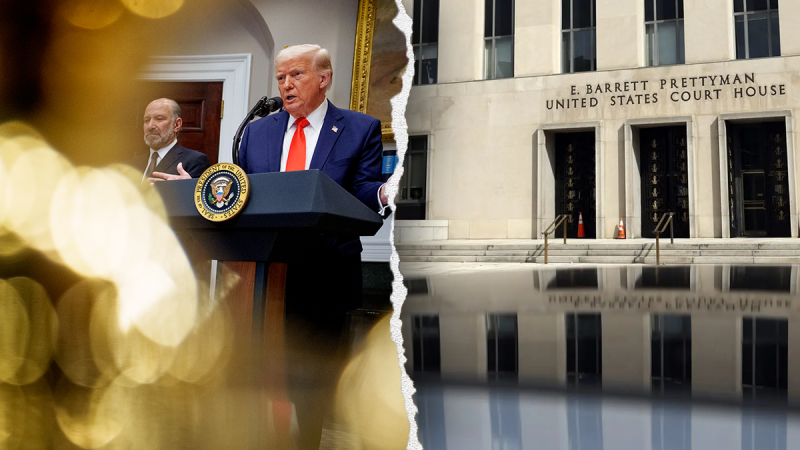
The legal resistance to President Donald Trump’s second term is in full swing with more than 120 lawsuits filed since Jan. 20 by states, advocacy groups and individuals targeting his executive orders and policy agenda.
As the lawsuits move through the judiciary, understanding the structure of the federal court system can help clarify how these challenges are likely to unfold.
Article III of the U.S. Constitution establishes the Supreme Court along with ‘inferior Courts as the Congress may from time to time ordain and establish.’ The Constitution also states that judges shall hold their offices during a period of ‘good behavior.’
The federal judiciary has three main levels: district courts (trial courts), circuit courts (the first level of appeal) and the Supreme Court (the final appellate authority). There are 94 district courts, 13 circuit courts and one Supreme Court.
To hear a case, a court must have personal jurisdiction (authority over the parties involved), subject matter jurisdiction (authority to hear the type of legal issue at hand) and proper venue (the correct geographic location for the case to be tried).
Unlike state courts, which have broad authority, federal courts are courts of ‘limited jurisdiction,’ which means they can only hear cases authorized by the Constitution or federal law. Each lawsuit filed against the Trump administration raises a federal question, giving federal courts subject-matter jurisdiction.
Each district court has at least one United States district judge appointed by the president and confirmed by the Senate for a life term. Plaintiffs who lose at the district court level can appeal to a federal appellate court.
Appellate courts, also known as circuit courts, hear appeals from district courts within their geographic boundaries. Each circuit covers multiple states. For example, the Fifth Circuit includes Louisiana, Mississippi and Texas.
Each circuit also has multiple judges, ranging from six total judges to 29. Appeals to the circuit courts are first heard by a panel of three judges. Parties must file briefs to the court, arguing why the trial court’s decision should either be affirmed or reversed.
After briefs are filed, oral arguments are scheduled during which attorneys from both sides present their case and answer questions from a panel of judges. In some instances, the full court may hear a case in what’s called an en banc session. The Ninth Circuit, due to its size, follows a modified en banc process.
A circuit court’s decision is binding on all lower courts within that circuit. As such, those courts must follow that holding. Other circuits can look to that circuit’s holding as reference, but they are not bound by it.
A case can generally only be appealed once a final decision has been issued. However, some issues can be appealed before a final decision is made via what’s called an interlocutory appeal.
Parties can appeal a circuit court’s decision to the U.S. Supreme Court by filing a writ of certiorari, which is a request for the court to review the case. The Supreme Court isn’t required to take the case and denies most petitions, granting review in less than 1% of appeals. When cert is denied, the lower court’s ruling remains in place.
A circuit split is when circuits disagree on a particular legal matter. This will generally prompt the Supreme Court to grant cert in a case. If cert is granted, parties must file briefs and conduct oral arguments.
Each circuit is assigned to a specific Supreme Court justice who handles certain appeals from that region, such as emergency applications and administrative requests. For example, Chief Justice Roberts oversees the D.C. Circuit, the 4th Circuit and the Federal Circuit. The assigned justice may act alone or refer the matter to the full court at their discretion.
The Trump administration has already appealed various decisions to the Supreme Court via emergency appeals. On March 28, the administration asked the court to review a temporary restraining order that blocked the administration’s use of an 18th-century wartime law to deport Venezuelan nationals, including alleged members of the gang Tren de Aragua, from the United States.
The appeal came shortly after the U.S. Court of Appeals for the D.C. Circuit issued a 2-1 ruling to uphold the district court’s decision blocking the administration.
Fox News Digital’s Breanne Deppisch contributed to this report.
